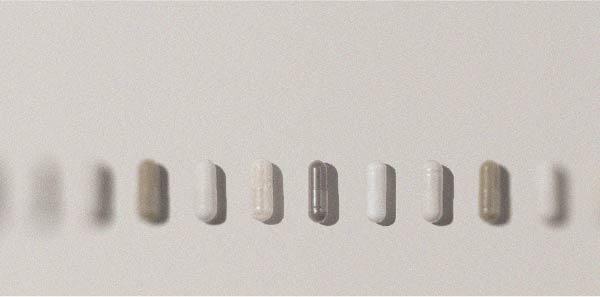What will the food of tomorrow look like?
Which foods will we all be eating in 2050 and beyond? Discover how the culinary landscape is likely to change in the decades to come.

Why do we need to find new foods?
The human population is widely predicted to reach almost 10 billion by 2050. Indeed, each passing hour brings another 10,000 mouths to feed on this planet of ours.
Yet at the same time, the agricultural land available for feeding the human race is in shrinking dramatically. While in 1980, there were 3000m² of farmland per capita, that figure has now fallen to 2400m² and is estimated to decrease still further to just 1600m² by 2050 (1).
What’s more, climate change will only add to the pressures on global food production: more significant droughts, lower yields, more frequent climatic hazards, etc. Not to mention the decline in natural resources(2).
In order for the whole of humanity to be provided with sufficient macronutrients (protein, carbohydrates and fats) and micronutrients (vitamins, minerals, trace-elements, etc.), in an effective and responsible way in the face of tougher conditions, innovations are badly needed if we are to develop the foods of tomorrow.
Insects: a novel food offering considerable promise
Though insects are already traditionally consumed by close to 2 billion people, primarily in the global South, their authorisation as a novel food for the human diet in Europe is slow in coming.
Rich in protein, and requiring little in the way of space, food, or direct water supply, insects constitute one of the most promising foods for feeding 10 billion humans in the future (3).
At present however, only two species of insect are authorised by the EFSA for human consumption in Europe: crickets from the Dutch company Protix, and dried yellow mealworm from Agronutris (as well as frozen yellow mealworms also produced by Protix).
This is because of the large number of tests needed to ensure the insects deliver nutritionally and are safe, especially in relation to potential allergies(4).
Lab-grown meat: no easy solution
While the subject of artificial, or in vitro meat, produced by start-ups, has been causing a stir for a few years now due its decidedly futuristic nature, lab-grown meat appears increasingly unlikely as a viable solution in the medium term (5).
Indeed the cost of the energy and cutting-edge technology necessary for the production of in vitro meat makes the process unviable for the time being. In addition, as things stand technology-wise, the production of artificial meat would have a significant impact on the environment, making it obsolete in the light of the challenges we face in the coming decades (6).
Seaweed: food of the future that’s good for our health
Seaweed has been consumed for thousands of years in Asia, but it’s only recently that Western societies have discovered the health and nutritional benefits of algae, quite apart from its environmental advantages.
Even today, algae capture almost 50% of the CO2 present in the atmosphere. Potentially rich in protein and/or lipids (depending on the species), and easy to grow, seaweed can also be converted into ingredients for use in recipes, such as a replacement for eggs (7).
Algae therefore constitute an excellent option for helping to feed the humans of the future.
Dietary supplements: increasingly essential?
It’s widely acknowledged by experts that the trope of science fiction in which future humans are sustained by a ‘meal-in-a-pill’ is absurd (we need to eat real food). However, it’s equally widely recognised that supplementation will probably become essential for meeting our nutritional needs.
Indeed, with the planet’s agricultural land in decline, the main challenge will be intensification of production. In this context, dietary supplements constitute a perfect resource for supplying the micronutrients that may no longer necessarily be present in the foods meant to meet our macronutrient requirements.
It’s now entirely reasonable, therefore, to imagine a future where populations take a daily supplement cocktail along the following lines:
- vitamin D: vitamin D deficiency is already widespread among modern Western populations due to insufficient exposure to sunlight. In a future devoid of dairy products and wild fish, in which people may be spending more time indoors, supplementation with vitamin D would probably become necessary (8). Vegan vitamin D3 would be the preferred option (the form already available in Vegan D3, which offers excellent bioavailability and is obtained from GMO- and pesticide-free algae) ;
- vitamin B12: while insects and some yeasts are excellent sources of vitamin B12, the same cannot be said of mushrooms and algae (where the B12 they contain is not bioavailable to the body). As a result, many individuals will need to supplement with vitamin B12 (the Methylcobalamin type) in order to meet their needs (9) ;
- omega-3: as with vitamins D and B12, omega-3s are obtained by consuming terrestrial plants and fish, both of which will be in shorter supply in the decades to come. It will therefore be necessary to rely on omega-3 supplements to cover the body’s needs (10). In the case of certain omega-3 supplements, such as Arctic Plankton Oil, it is Calanus finmarchicus zooplankton, the most abundant animal species on the planet, which are used, with fish stocks remaining untouched.
- calcium: nettles, spinach and other vegetables are undoubtedly good sources of calcium – but you have to eat a considerable amount (around 1kg a day) to meet the recommended daily intake for calcium. Cheese remains the best source of calcium, but in a world without dairy products, calcium supplementation will become essential (11) ;
- magnesium: the majority of Europeans are already lacking in magnesium,, and in a future in which our access to oily fish, shellfish and seafood will be limited, we may need to supplement with magnesium to obtain the recommended daily amounts of between 200mg and 370mg a day (12). The preferred form would probably be the highly-bioavailable magnesium orotate (which is found in the supplement Magnesium Orotate) ;
- iron: in Europe, adolescents and women who rarely eat meat are generally deficient in iron. In the future, insects, which provide as much iron as rib-eye steak, should be able to meet the population’s iron needs and prevent anaemia. But those who cannot bring themselves to eat insects will, like now, need to consider supplementing with iron (the Iron Bisglycinatekind), on medical advice (13).
Mushrooms and yeasts
Rich in fibre, minerals, vitamins and, to some extent, protein (around 3% for many mushrooms such as shiitake), easy to grow, requiring little space, water and energy and using organic waste, mushrooms are recognised by experts as a food that’s destined to become more important in the future. What’s more, they are rich in polysaccharides with proven benefits for immunity (14-15).
Indeed, yeasts and bacteria are already being fermented to produce protein suitable for human consumption with high bioavailability, such production using 10 times less surface area than soya, for example.
10 times more calories and protein, production that takes a few hours rather than several months, productivity of 1500 kilocalories per square metre (with the potential to concurrently produce solar energy in the same area): yeasts and bacteria are undoubtedly among the most reliable options for producing the food of tomorrow (16-17).
References
- WALLERSTEIN, David. Food-energy-water (FEW) nexus: Rearchitecting the planet to accommodate 10 billion humans by 2050. Conserv. Recycl, 2020, vol. 155, p. 104658.
- HABERL, Helmut, ERB, Karl-Heinz, KRAUSMANN, Fridolin, et al.Global bioenergy potentials from agricultural land in 2050: Sensitivity to climate change, diets and yields. Biomass and bioenergy, 2011, vol. 35, no 12, p. 4753-4769.
- VAN HUIS, Arnold. Potential of insects as food and feed in assuring food security. Annual review of entomology, 2013, vol. 58, p. 563-583.
- https://www.efsa.europa.eu/fr/news/edible-insects-science-novel-food-evaluations
- BHAT, Zuhaib Fayaz, KUMAR, Sunil, et FAYAZ, Hina. In vitro meat production: Challenges and benefits over conventional meat production. Journal of Integrative Agriculture, 2015, vol. 14, no 2, p. 241-248.
- HOCQUETTE, Jean-François. Is in vitro meat the solution for the future?. Meat science, 2016, vol. 120, p. 167-176.
- CAPORGNO, Martín P. et MATHYS, Alexander. Trends in microalgae incorporation into innovative food products with potential health benefits. Frontiers in nutrition, 2018, vol. 5, p. 58.
- PRENTICE, Ann. Vitamin D deficiency: a global perspective. Nutrition reviews, 2008, vol. 66, no suppl_2, p. S153-S164.
- STABLER, Sally P. Vitamin B12 deficiency. New England Journal of Medicine, 2013, vol. 368, no 2, p. 149-160.
- SIMOPOULOS, A. P. Evolutionary aspects of omega-3 fatty acids in the food supply. Prostaglandins, Leukotrienes and essential fatty acids, 1999, vol. 60, no 5-6, p. 421-429.
- MILLER, Dennis D. Calcium in the diet: food sources, recommended intakes, and nutritional bioavailability. Advances in food and nutrition research, 1989, vol. 33, p. 103-156.
- MARIER, J. R. Magnesium content of the food supply in the modern-day world. Magnesium, 1986, vol. 5, no 1, p. 1-8.
- HURRELL, Richard F. Preventing iron deficiency through food fortification. Nutrition Reviews, 1997, vol. 55, no 6, p. 210-222.
- CHANG, S. T. Mushrooms as human food. Bioscience, 1980, vol. 30, no 6, p. 399-401.
- https://cordis.europa.eu/article/id/150431-dietary-fibres-to-boost-the-immune-system/fr
- JACH, Monika Elżbieta, SEREFKO, Anna, ZIAJA, Maria, et al.Yeast Protein as an Easily Accessible Food Source. Metabolites, 2022, vol. 12, no 1, p. 63.
- WALLS, Edward L. et GAINER, John L. Increased protein productivity from immobilized recombinant yeast. Biotechnology and bioengineering, 1991, vol. 37, no 11, p. 1029-1036.
Keywords
3 Days
Order was shipped on time and packaged…Wonderful Jobs!
Order was shipped on time and packaged excellently.
DMHoge
9 Days
great products and prices
great products and prices
Marie
15 Days
Easy to navigate site
Easy to navigate site, had what I was searching for, good price. easy order-check out
James Tucker
21 Days
My skin is clearing up nicely!
Pretty good for my skin so far.
Christian
23 Days
The new packaging is excellent
The new packaging is excellent - finally! No more squashed boxes and torn envelopes.
GORAN
24 Days
Great Product
Great Product
Larry Garrett
28 Days
Quick shipping
Quick shipping; good price. No issues!
Mary McCarty
30 Days
Thr product is very good and is helping…
Thr product is very good and is helping me on my health. Then is always on time
LUGO Luz
32 Days
Buying was fine
Buying was fine. I had problems with the website not recognizing my login info, and had to call to get it fixed. Other than that, everything was good.
David S. Clark
32 Days
Your super maca and super ginseng are…phenomenal
Your super maca and super ginseng are phenomenal supplements that compliment each other when taking them together. Fantastic feeling of well-being and lots of mid day energy without the crash.
Keith Mason
35 Days
I have had amazing results with every…
I have had amazing results with every supplement I've purchased. I am extremely satisfied with this company
kirstin Torres
35 Days
Fine products
Fine products . They are on the leading edge of online supplements. The only issue -so far-is they sometime run out of subscription items.
Jason Argos
38 Days
The ordering process is very user…
The ordering process is very user friendly and the products always come in a timely manner.
CARTER Rhonda
39 Days
The price for Dr
The price for Dr. Pero's AC-11 is reasonable and in line with his views. (my former colleague). Keep it pure.
CAMPBELL Clayton
42 Days
Right on every time.
Right on every time.
Arthur Nicholas




